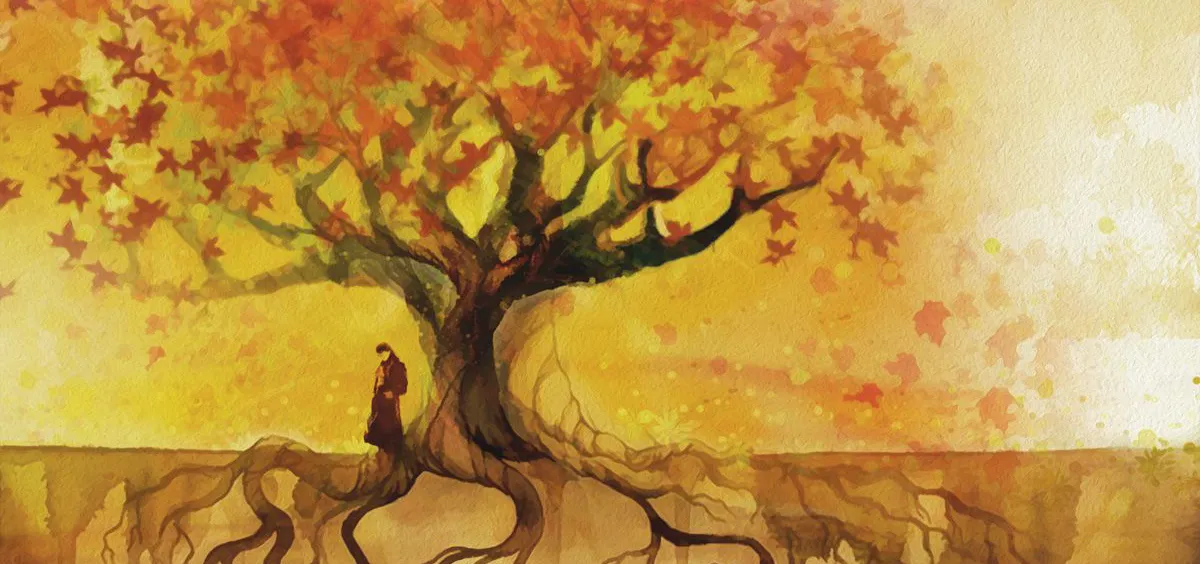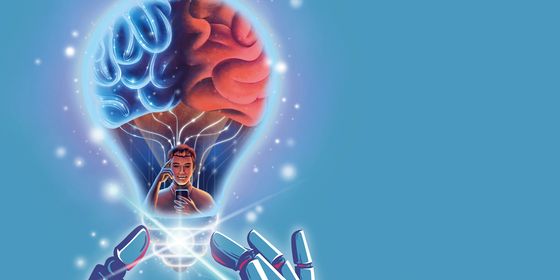The character that gets back to basics
On a drunken night, Shenzhen construction workers Old Zhao and Old Liu make a pact that, if either dies on the job, the other must arrange for his body to be sent home. One morning, Liu doesn’t wake up from the pair’s latest bender, and Zhao, worried about the cost of cremation, decides to pretend his friend is still alive while accompanying the body on its journey home to Sichuan.
This absurd Weekend at Bernie’s-style scenario drives the plot of the 2007 comedy Getting Home (《落叶归根》) for over 1,000 kilometers of mishaps, thefts, hucksters, and mudslides. Underlying the ridiculous road trip (which was actually based on a true story) is a deep compassion for the characters’ plight: the titular yearning to “get home.”
Stemming from a famous proverb 树高千丈,叶落归根 (Shù gāo qiān zhàng, yèluò guīgēn, “Even on a tree of a thousand meters, leaves will fall to the roots”), 叶落归根 expresses the traditional Chinese belief that, wherever a person ends up in the world, they must return to their birthplace one day—if not in their old age, then at least in death.
Originating in the Warring States period (475 – 221 BCE), the character 根 consists of a “tree” radical, 木 (mù) on the left, referring to the roots of a tree. Its basic meaning has remained unchanged throughout history, though it has evolved to include all kinds of other roots: 牙根 (yágēn), 舌根 (shégēn), 耳根 (ěrgēn), and 发根 (fàgēn) refer to the roots of the tooth, tongue, ear, and hair, respectively. Likewise, 山根 (shāngēn) refers to the foot of a mountain, and 墙根 (qiánggēn) the base of a wall.
Roots can also be abstract. The expression 命根子 (mìnggēnzi, “the very life” or lifeblood) describes a very important person or object, as in 他家三代单传,儿子是全家的命根子。 (Tā jiā sān dài dānchuán, érzi shì quánjiā de mìnggēnzi. “His family has had only one male heir for three consecutive generations. His son is the lifeblood of the whole family.”) The word 草根 (cǎogēn, grassroots) is used in terms related to the masses, as in 草根文化 (cǎogēn wénhuà, mass culture) and 草根阶层 (cǎogēn jiēcéng, the common people).
Roots are necessary in order for things to build or grow. Accordingly, 根源 (gēnyuán) is the noun for a source, cause, or origin, as in 战争是大灾荒的根源。(Zhànzhēng shì dàzāihuāng de gēnyuán. “War is the root of famine.”) It can also be used as a verb: 这些现象根源于传统文化。(Zhèxiē xiànxiàng gēnyuán yú chuántǒng wénhuà. “These phenomena stem from traditional culture.”) By comparison, 根据 (gēnjù) refers to more concrete grounds for particular words and actions, as in 说话要以事实为根据。 (Shuōhuà yào yǐ shìshí wéi gēnjù. “Any statement should have a basis in facts.”) It can also serve as an adverb: 根据具体情况 (gēnjù jùtǐ qíngkuàng, in light of certain conditions).
Knowledge of 根 indicates familiarity. For example, 知根知底 (zhīgēn zhīdǐ) means complete knowledge of someone or something, as in 我们是老朋友,彼此知根知底。 (Wǒmen shì lǎopéngyǒu, bǐcǐ zhīgēn zhīdǐ. “We are old friends and know each other through and through.”) To understand something thoroughly, one should 寻根究底 (xúngēn jiūdǐ, inquire deeply). Too much curiosity, though, may prompt an admonishment: 让你去就去,何必寻根究底。(Ràng nǐ qù jiù qù, hébì xúngēn jiūdǐ, “Just go where you’re told. Stop asking why.”)
Roots are vital; without foundations, a building will surely fall. Therefore, 根 can also be an adverb, meaning “completely” and “thoroughly.” It is often paired with verbs to emphasize the completeness of an action. For example, 根除 (gēnchú) means to eradicate, as in 根除弊端 (gēnchú bìduān, stamping out corruption), while 根治 (gēnzhì) means to cure a disease or solve a problem once and for all, as in 根治肺结核 (gēnzhì fèijiéhé, eradicating tuberculosis).
The character 本 (běn), consisting of a “tree” character with a stroke at the bottom, also refers to the root of a tree. Originally the same word, 根 and 本 can be used in combination to stress the fundamentals of a concept. For example, 水和土是农业的根本 (Shuǐ hé tǔ shì nóngyè de gēnběn. “Water and soil are the foundation of agriculture”). It is also an adverb, stressing something as absolute, as in 我根本没有说过这种话。 (Wǒ gēnběn méiyǒu shuōguo zhè zhǒng huà. “I absolutely did not say such a thing.”)
At the end of Getting Home, there’s a rather Chinese twist: When Old Zhao finally makes it to his friend’s hometown with the latter’s ashes (having, thankfully, agreed to a cremation along the way), it’s only to find that the Liu family has abandoned their house and moved to another city to make way for a dam construction. Armed with their new address, left conveniently on the door, Old Zhao heads off for presumably more misadventures. His ongoing plight and gritty determination remind us of a universal truth—people will continue to be nostalgic for their roots, even if they may be lost forever.
On the Character: 根 is a story from our issue, “Home Bound.” To read the entire issue, become a subscriber and receive the full magazine.













